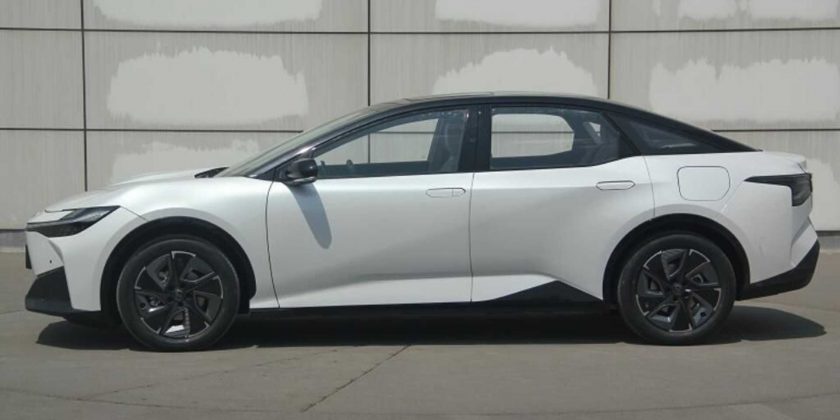Toyota has made it clear time and time again that it has no interest in rushing into fully electric cars. However, it will listen to its customers and follow the market’s needs. In order to chip away at some of Tesla’s growing market share in China and Europe, the Japanese automaker is ready to bring its fully electric sedan to market.
As Toyota slowly moves forward with EVs, it has developed its own proprietary global platform that’s designed for electric cars from the ground up. The E-TNGA platform will serve as the foundation for a number of Toyota electric vehicles going forward.
The first fully electric Toyota vehicle on the E-TNGA platform is the bZ4X compact SUV. The automaker actually already started delivering the new model, however, there’s now a global delay to the launch of the electric crossover due to a recall for a wheel-mounting concern.
According to Autocar, Toyota CEO and president Akio Toyoda shared last year that the bZ4X would be followed by a long list of future Toyota EVs. One such vehicle was known as the bZ Sedan when it was still a concept, though the publication believes Toyota will officially call it the bZ3.
The Toyota bZ3 electric sedan will enter the Chinese EV market soon. It’s expected to perform well in China since there’s a high demand for sporty sedans. Sales in Europe are expected to begin as early as 2024. There are currently several new electric models working to take market share away from Tesla, and the bZ3 will join the bandwagon to rival the Tesla Model 3.
According to information published on China’s Ministry of Industry and Information Technology website, the bZ3 will be available with two powertrains making either 178 or 238 bhp. The EV will weigh 1710-1840 kg and have a top speed limited to 99 mph.
It’s also important to note that thanks to Toyota’s partnership with BYD, the bZ3 is expected to employ the company’s Blade lithium iron phosphate battery tech. The battery tech is reported to have a high energy density while being safer than other chemistries. With energy-dense batteries, the battery pack can be smaller, which allows for more interior space.
Source: Autocar
- Share on Facebook
- Share on Twitter
- Share on LinkedIn
- Share on Flipboard
- Share on Reddit
- Share on WhatsApp
- Send to email
Source: Read Full Article

